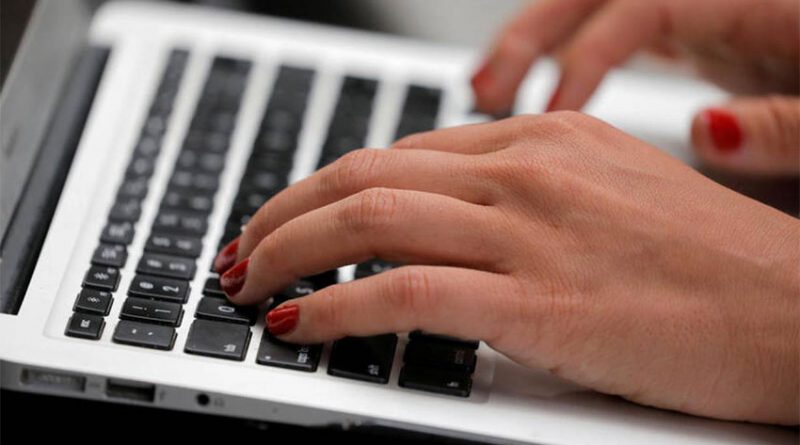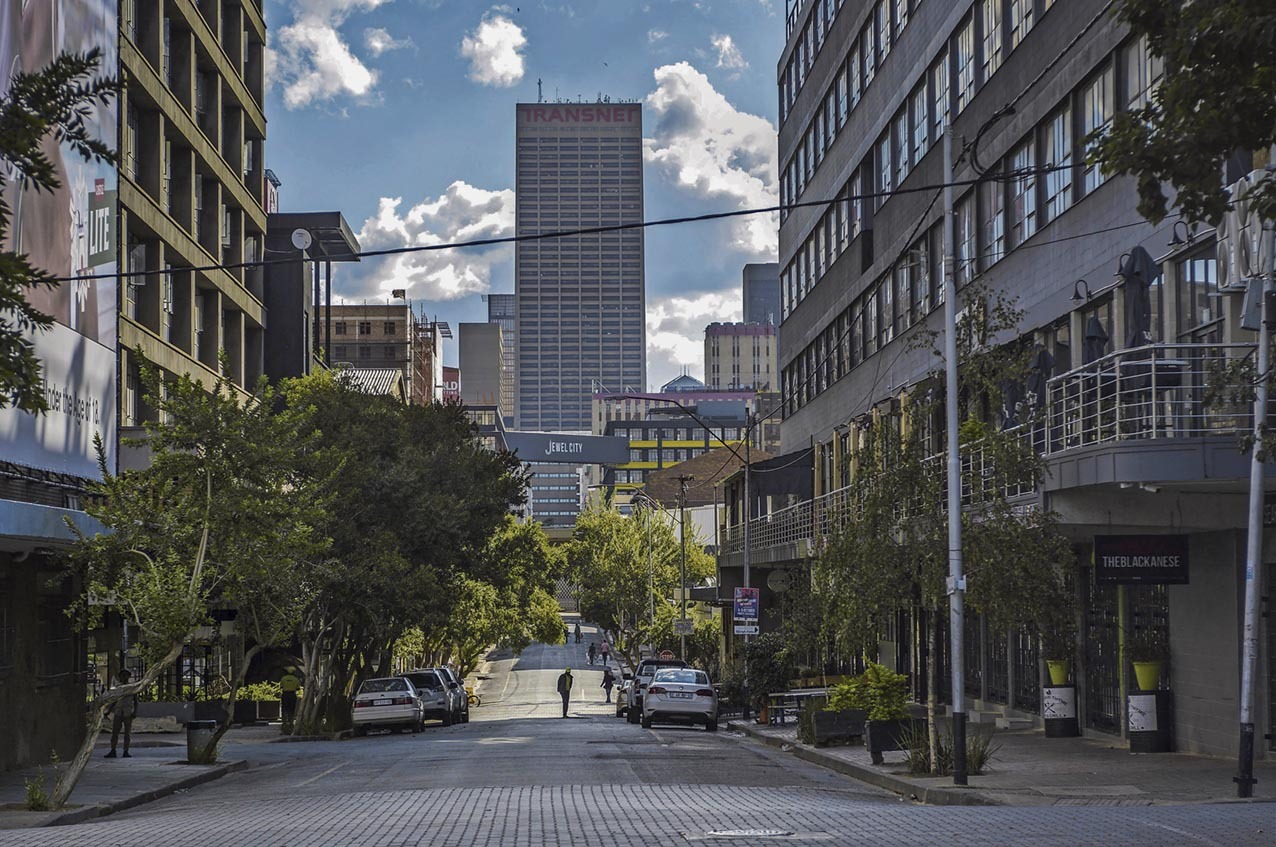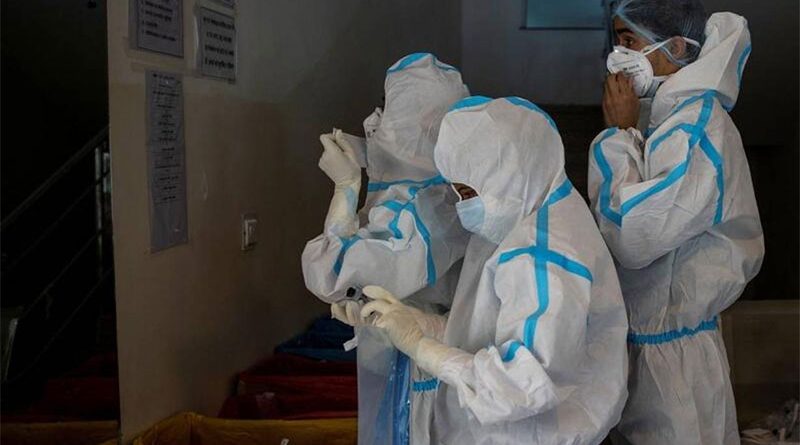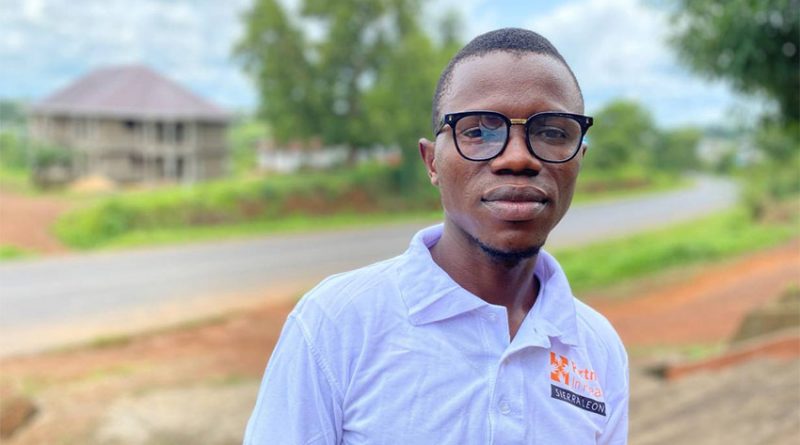THE coronavirus pandemic added a new layer to the ever-developing debate around privacy and technology in 2020, as governments and companies turned to tools like contract tracing apps and employee monitoring software.
As the year comes to an end, the Thomson Reuters Foundation asked privacy experts around the world what issues will shape the conversation in 2021:
- MASS SURVEILLANCE – Ella Jakubowska, policy officer, European Digital Rights, Brussels
“In 2021, one big challenge for civil society will be protecting fundamental rights in Europe from the threat of mass surveillance.
On the one hand, the European Commission is poised to propose new legislation to ensure that artificial intelligence can only be used in trustworthy ways.
On the other, in late 2020, plans for a sorely needed ePrivacy Regulation were abandoned, lawmakers and celebrities alike made misguided attacks on encryption, and an expansion of biometric mass surveillance infrastructure was proposed.
These trends suggest there is a lot of work to be done in 2021 to protect Europe from transforming into a union of undemocratic police states.”
- DATA PROTECTION – Sutawan Chanprasert, founder, DigitalReach, Bangkok
“In Southeast Asia, various digital contact tracing systems were introduced, and governments had the right to hold on to the data for as long as they wished.
We do not know if these systems will be dismantled or if they will continue in some form, and there is no guarantee that they won’t be used for surveillance. This trend of collecting and keeping personal data will likely continue.
While Thailand and Indonesia are looking to introduce personal data protection laws, we do not see privacy or data protection being priorities across the Southeast Asia region, with governments taking greater control of the digital space and using data to silence critics.”
- PRIVACY LEGISLATION – Jennifer Brody, advocacy manager, Access Now, Washington D.C.
“In 2021, lawmakers around the globe must make a concerted effort to better address the uncharted impact of Brexit, the end of the EU-U.S. Privacy Shield, and Big Tech as gatekeepers, for a data economy that should put people’s rights at the forefront.
We are witnessing a lack of enforcement of strong data protection laws, an increase of prying government surveillance, and tech giants doubling down on data harvesting practices.
This is eroding our privacy rights globally and hurting the digital economy. The need to reform surveillance laws in the United States and in Europe, and to adopt privacy legislation in India and in the U.S., has never been more urgent.
- DIGITAL ID – Alice Munyua, director, Africa innovation strategy, Mozilla, San Francisco
“The United Nations’ Sustainable Development Goal 16.9 is often conflated with and used to justify high-tech ID projects.
Frequently funded through development aid, these digital ID schemes risk abusing privacy and amplifying patterns of discrimination and exclusion.
Digital ID projects are being implemented throughout the African continent in countries which lack privacy and data protection laws or robust connectivity infrastructure.
Supported by international donors like the World Bank, the European Union and others, they are often costly, invasive and not necessarily secure.”
- CONTACT TRACING – Maksym Dvorovyi, lawyer, Digital Security Lab, Kyiv
“During the pandemic, contact tracing became one of the tools necessary for the prevention of the spread of the disease.
At the same time, through such applications, large amounts of sensitive data about persons were and are being collected by (various) states.
While some states have proper personal data protection laws, others don’t – and the problem of proper retention of the collected data may arise.
In 2021, we may expect to find data collected through the apps in unexpected places and its use for unexpected purposes, especially in regions with weak data protection laws.”
- WORKPLACE SNOOPING – Edin Omanovic, advocacy director, Privacy International, London
“From wide-scale snooping on workplaces to the imposition of tracking bracelets, the coronavirus has changed society’s fundamental relationship with technology and likely in ways we’re not even close to understanding.
2021 will be the year that these changes are formalised. Large multinational institutions and democratic governments are already investing in things like increased travel surveillance and digital ID systems as “solutions” to COVID-19 and virus 2.0.
Key battlefronts will be fights over competition law, investments in health and travel surveillance systems, decisions over the use of surveillance powers in public spaces and workplaces, and the appropriate role for for-profit surveillance companies.”
- FACIAL RECOGNITION – Artem Kozlyuk, head, RosKomSvoboda, Moscow
“In Russia, primarily in Moscow, the active deployment of facial recognition systems continues. These technical means and the accumulated sensitive data, including biometric data, are outside public control.
At the same time, leaks and unauthorised access to surveillance by third parties regularly occur, which, along with recognition errors, causes great concern.
The state obliged manufacturers of electronic devices like smartphones and computers to preinstall domestic software from a special list before sales in Russia. This raises many questions and concerns among specialists and human rights defenders.”
- DATA BREACHES – Murray Hunter, anti-surveillance author, Cape Town
“South Africans will have to raise the political costs for data breaches.
In July 2021, South Africa’s data protection law will finally come into full legal force, after years of delays.
South Africa is a country with huge inequality, where banks, insurers, political parties, cyber criminals and many more have made great profit from the buying and selling of people’s personal data – and mass data breaches have become all too common.
In 2021, we’re finally going to see what it takes to actually enforce data protection – can a rickety government watchdog hope to put a stop to this? Or, will lobbyists and lawyers end up ghostwriting the kind of oversight and regulation their clients want to see?
That said, I’m also hopeful that 2021 will see a growing demand for better data protection from ordinary South Africans – adding new political and financial costs to those in government and the private sector who just haven’t taken this issue seriously.”
Source – Thomson Reuters Foundation
The year 2020 will, of course, be remembered for the Covid-19 pandemic. Many African countries have handled the public health effects of coronavirus well compared with neighbouring continents, with some 55 000 related deaths and 2 million recovered out of a population of just over a billion. This can be credited to quick action and leadership by the Africa Centres for Disease Control and Prevention (Africa CDC) and others. This was assisted by public support and a youthful population where about only 3% are over 65 and there are relatively few institutionalised homes for the elderly. Climate, prior exposure to other coronavirus strains and effective community health networks set up in response to contain other epidemics such as Ebola also clearly played a role.
Unfortunately, many African countries will be much more seriously affected by the socioeconomic consequences of the global economic slowdown triggered by the pandemic. Even before Covid-19 hit, an increasing number of African countries were indebted and financially stressed. African debt will become a greater global concern in 2021 as many African states remain the world’s poorest and most fragile and have been hard hit by the economic and financial costs imposed by the pandemic.
In April, the World Bank’s development committee and G20 finance ministers endorsed the Debt Service Suspension Initiative (DSSI) which includes 40 African least developed countries (LDCs). This G20 initiative, backed also by the International Monetary Fund (IMF) and G7, did not provide any reduction in the net value of debt, but it suspended repayment to no earlier than 30 June 2021.
The DSSI has made $5.4-billion in African debt owed in 2020 eligible for deferment. This, however, is only a fraction of the $13.6-billion in interest and principal owed by sub-Saharan African states to bilateral creditors (many of them are not part of the G20).
Bilateral debt management is also not the main debt burden in 2021. There is estimated to be $20-billion in private obligations, much of it owed to Chinese commercial creditors or Eurobond repayments. China, as a key lender to Africa, has provided its backing for the G20 plan but private creditors are not part of this plan and China has been reluctant to fully disclose all its loans. Talk of a Chinese debt-trap strategy in Africa is overstated, although Djibouti’s debt exposure to Beijing might have been partly the result of this because of its geostrategic location.
Looking ahead
2021 will be a slow recovery year for many African states, with increased unemployment and growing debts and reduced liquidity to provide public services. A few countries are likely to struggle particularly: Zambia – which in November became the first sovereign-debt defaulter of the Covid-19 era – Angola and Namibia are badly exposed. Zimbabwe is already in debt arrears to the Bretton Woods institutions and rejected being an LDC so is not eligible for DSSI debt relief.
A number of eligible African states, such as Angola, Congo-Brazzaville and Equatorial Guinea, have entered into programmes with the IMF. For such countries, hit by a sharp dow-turn in commodity demand, their overdependence on raw material exports has once again exposed their debt sustainability: Angola will in 2020 have reached a debt to GDP ratio of just short of 120%.
The DSSI also has a key flaw. It treats debt as a liquidity issue, yet for many African countries it is a solvency crisis. More African states will turn to the IMF or have existing programmes extended to keep afloat and we should expect a strong call from Africa and from concerned rich countries for a round of bilateral debt forgiveness in 2021.
African debt forgiveness could become a key agenda item for the Italian presidency of the G20 and the UK presidency of G7 in 2021. France and Germany have already signalled that they would consider this. This will not be simple, given that over the past decade African borrowing has expanded significantly to a constellation of private actors, but it is urgent.
2021 will also see increased geopolitical rivalry for influence in Africa. This will include competition over generosity, ranging from positioning over debt forgiveness to providing Covid-19 vaccines. China is planning this through the Covax mechanism; the Russians via their Sputnik V vaccine; the UK via the AstraZeneca and University of Oxford vaccine; and the US via the Pfizer-BioNTech vaccine and others. Africa will also become of greater American focus under a Biden administration, including assisting Covid-19 recovery, but also for containing Russian and Chinese advances on the continent.
This will also be reflected via international summitry currently scheduled for 2021 with the second UK-Africa Investment Summit in January (this time a virtual affair); the eighth Forum for China Africa Cooperation in Dakar; the sixth EU-AU summit in Brussels (postponed from 2020) and possibly a fourth India-Africa Forum Summit (also postponed from 2020).
These international summits will focus on trade and investment but should also focus on combating poverty. The economic impact of Covid-19 has significantly slowed down poverty reduction in Africa. Already flatlining because of unequal and patchy economic growth, coupled with continued demographic growth, this remains a key challenge for Africa in coming years to unlock economies that provide sufficient and equitable growth for a youthful continent of 1.2-billion people.
Democratic development – and stagnation
Sub-Saharan Africa’s 48 countries prior to Covid-19 featured several of the world’s fastest-growing economies and a burgeoning middle class, but also remained mired in some regions by debt, conflict and protests, and plagued by elites clinging to power. Civilian-led reform movements toppled regimes in Algeria and Sudan in 2019 paving the way for ongoing messy transitions. Youth-led protests have clashed with government security forces, pushing for accountable government, such as the #EndSARS Movement in Lagos or the 11 November (Independence Day) demonstrations in Luanda. More protests should be expected in 2021.
There have been democratic advances in 2020. An independent court in Malawi overturned fraudulent presidential elections, resulting in a rerun that brought opposition leader Lazarus Chakwera to power. The Seychelles electorate voted for an opposition candidate for the first time since independence in 1976. These positive developments and smooth but fiercely contested elections in Ghana, resulting in the re-election of incumbent Nana Akufo-Addo to the presidency, offered hope for the health of democracy in Africa. A smooth transfer of power in early 2021 in Niger hopefully occurs as President Mahamadou Issoufou steps down having served two terms, following presidential and legislative elections.
Fourteen presidential or legislative elections are scheduled for 2021. There will be a few democratic advances and many set-backs where fiercely contested elections are heavily skewed in favour of incumbents. Some like Chad, Congo-Brazzaville, Djibouti and Uganda are expected to see the return of their long-standing leaders; others such as Cape Verde and São Tomé e Principe will be freely contested — Zambia’s elections will be fiercely contested
2021’s elections will continue to show a continental trend of mostly democratic stagnation. Incumbents were re-elected in Guinea and Côte d’Ivoire this year, following controversial redrafting of constitutions; elections in Tanzania were overtly oppressive and fraudulent. Flawed electoral practice in Mali contributed to a military coup in August, which toppled an unpopular government and has introduced an 18-month transitional process.
A year ago, Ethiopia’s Prime Minister Abiy Ahmed was lauded as Nobel Prize winner and a reformer, but his military action against the leaders of the Tigray region in November has unlocked a regional conflict that also involves Eritrea and will not be resolved militarily.
Conflict resolution
Resolving persistent conflicts continues to be a top priority for African security in 2021, whether in South Sudan, the Central African Republic, the Democratic Republic of the Congo or elsewhere. Covid-19 may have encouraged exploratory peace talks with Anglophone separatists in Cameroon but divisions within Cameroon’s regime appear to have since undermined progress.
In 2020, countering Islamist-linked terrorism increasingly dominated Africa’s security agenda and will do so in 2021, from established networks like al-Shabab in Somalia and Boko Haram in West Africa, to widening threats in the Sahel and the emboldened Islamic State-affiliated efforts in northern Mozambique, also now spilling over into Tanzania. Meanwhile, long-standing violence between nomadic herders and sedentary farmers in West Africa and the Sahel continues to be largely overlooked.
African leaders are set to elect a new African Union Commission at the continental body’s next ordinary summit early in 2021. This new commission will have plenty on its plate: Covid-19 recovery, peace and security, and navigating geopolitics and economic recovery.
Kick-starting the African Continental Free Trade Area (AfCFTA) that starts trading on 1 January 2021 will need to be a priority. This is an internationally significant moment for Africa, and although a long-term project, provides Africa an economic pathway for internal growth that is not entirely dependent on foreign direct investment or the exportation of commodities. The economic effects of Covid-19 on African economies is a reminder of why the success of the AfCFTA is strategic for Africa’s future.
Despite these challenges, 2021 could be an important moment for a fresh start, providing debt forgiveness to re-crafting Africa’s economic relationship with the global economy for greater pan-African prosperity and resilience for future generations.
Source - Mail & Guardian
THE Democratic Republic of Congo will impose a curfew and other strict measures, including the mandatory wearing of masks in public spaces, to fight a second wave of the coronavirus, its virus response team said on Wednesday.
The mining industry in the world’s leading producer of cobalt and Africa’s biggest copper producer will not be affected by the new measures.
Congo has recorded 14,942 cases of coronavirus and 364 deaths since the epidemic was officially declared in March.
But it has seen a steady increase in recent weeks, with 345 new cases declared on Wednesday, mostly in the capital Kinshasa.
From Friday a curfew will be imposed from 9 p.m. to 5 a.m. while marches and meetings of more than 10 people will be banned, the Multisectoral Committee for the Response against COVID-19 said in a statement.
School holidays will begin early, while higher education and university courses will be indefinitely suspended. Sports competitions will continue without fans and dead bodies must be taken to their burial place without any other ceremony.
The number of coronavirus patients in hospitals has surpassed those seen during the first wave, the head of the response team, Jean-Jacques Muyembe, said earlier this month, warning of a shortage of oxygen.
Congo re-opened its airspace in August after five months of closure to combat the virus.
On Monday, President Felix Tshisekedi said the second wave is caused mainly by cases from foreign countries and the relaxation of preventive measures.
Congo’s economy is forecast to contract slightly this year in line with a drop in global demand for copper and cobalt, two of its main exports.
Congo’s mining industry will not be impacted by the new rules, mines minister Willy Kitobo Samsoni said.
“All transporters of mining products will pass the curfew checkpoints because their work will be justified,” he told Reuters.
Source – Thomson Reuters Foundation.
AFTER losing his sister to Ebola and narrowly surviving the disease himself, health worker Sherry Bangura is on a mission to spread awareness about COVID-19 and stop it spreading.,
About one in three Ebola patients survived the outbreak which killed more than 11,000 people in West Africa between 2013 and 2016.
Bangura, 32, from Sierra Leone, says survivors like him are in a unique position to educate others about their experience and the importance of hygiene and vaccines.
As countries gear up to roll out COVID-19 vaccines, Bangura is on the frontlines — one of millions of health workers ensuring vulnerable people understand the importance of immunisation.
Working for the medical charity, Partners In Health, he goes door-to-door explaining how to use face masks and stay safe in the northern Port Loko district – a former hotspot of Sierra Leone’s Ebola outbreak.
This is his story:
Every day I go to visit my community and talk to Ebola survivors – widows, orphans, and children.
I represent over 750 Ebola survivors. Many are seriously suffering. I advocate for their welfare, health and mental care, hear their problems and get their voices heard.
Now I must also try to prevent Ebola survivors getting infected with COVID-19.
Ebola survivors can also be a point of entry to communities. We can give testimony that people can trust and believe.
I share experiences that are vital in fighting COVID-19 in terms of mitigating fears, in telling people about the seriousness of this disease.
Ebola survivors have a responsibility to step up and play a role in getting the COVID-19 vaccine to communities. We are the people to encourage others to take the vaccine.
People don’t easily trust the medical system. You have to do serious engagement with communities and training.
There is a lot of misinformation and misconception about the vaccine. People are afraid and are confused about vaccines.
I have been to almost every corner of my local district. I’m well-known in the community. People have trust and confidence in what I say.
It takes a whole day to convince someone that a vaccine can be beneficial for them.
I wasn’t fortunate to be vaccinated against Ebola.
But I can share experiences of my past, being a victim of Ebola, how to be patient, what being in quarantine means.
In the past, health professionals were inconsistent in giving out health information. I rely on giving information that is concrete and practical.
You use a layman to educate a layman. Let’s use our network of Ebola survivors, let’s use our people who are residents of these communities.
People who have experience of similar epidemics are in a better position to share that experience.
You cannot tell a story if you don’t understand it.
We have to explain the importance of taking the vaccine, how having a vaccine can help mitigate the spread and infection rate.
We need to explain the advantages the vaccine can bring to society and the economy.
We are learning about the outcome of vaccine trials in big companies in the world. We don’t have an idea when there will be vaccine trials in any of our communities.
The fear in Sierra Leone about the COVID vaccine is who will have it. Will it be expensive? will people be able to afford it or will only the rich get it?”
Source – Thomson Reuters Foundation.




